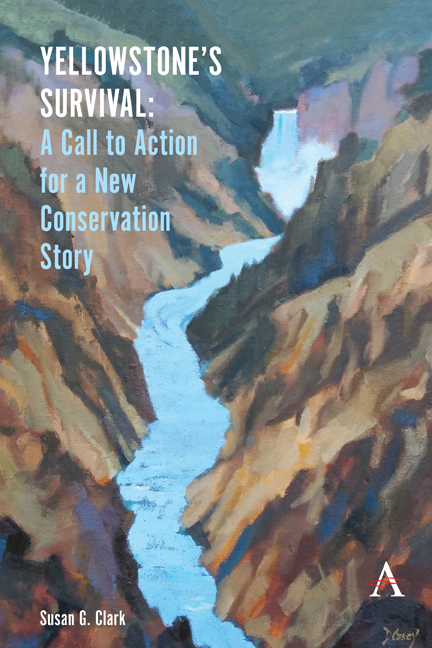 Yellowstone's Survival - A Call to Action for a New Conservation Story
Yellowstone's Survival - A Call to Action for a New Conservation Story 9 - Learning and Transforming
Published online by Cambridge University Press: 22 May 2021
Summary
It is only through labor and painful effort, by grim energy
and resolute courage, that we move on to better things.
In May 2015, I attended my 40th Greater Yellowstone Coordinating Committee (GYCC) meeting in Cody, Wyoming, as an interested member of the public. Founded in 1964, the GYCC is the highest-level government body in the GYE. Because of its important administrative role in the region, I spent 16 years dutifully attending meetings observing the committee, and in 2008, I published a book-length analysis of the GYCC— Ensuring Greater Yellowstone's Future: Choices for Leaders and Citizens. I concluded that GYCC's formal leadership, organization, and behavior were problematic because of its self-limiting thinking, bureaucratic rigidity, and contextual challenges. I was curious to see, years later, how agency leaders in the ecosystem think about the challenges they face, how the group is choosing to address those challenges, and how they engage the public in their meetings.
I was, first and foremost, interested in GYCC's guiding strategy for problem recognition and resolution. I discovered that their strategy was to focus on the least controversial, most concrete issues in the region, such as doing more data collection. A few large issues were forced on them, such as grizzly bear conservation, but they deferred to existing program models and interagency interactions— status quo approaches— to address them. The Cody GYCC meeting reinforced that the co-learning at individual, group, and organizational levels needed to most effectively address Greater Yellowstone’s growing challenges is not taking place at high levels of leaderships and governance. In fact, I observed that opportunities for co-learning were actively blocked by conventional thinking and bureaucratic structure and procedures. Meeting authorities blocked productive conversations, perhaps not intentionally. As well, fruitful avenues of inquiry were not followed up. The meeting came to people talking past one another without adequate facilitation or integration. This was largely due to rigid agency arrangements that presented a prescriptive method for addressing challenges, a method that rendered issues technical and limited interaction to that “box” largely.
That being said, I am supportive of GYCC's mission and sympathetic to the individuals involved. Practical co-learning is challenging, given the context, bureaucratic prescriptions, constraining incentives, and limited time for appraisal and reflection, both in and out of government.
- Type
- Chapter
- Information
- Yellowstone's Survival - A Call to Action for a New Conservation StoryA Call to Action for a New Conservation Story, pp. 207 - 236Publisher: Anthem PressPrint publication year: 2021


